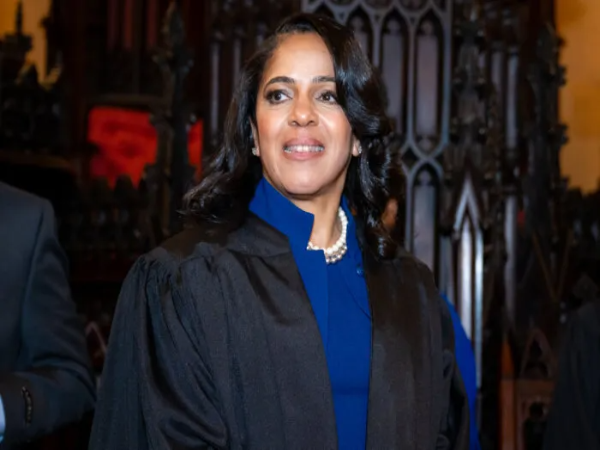Linda Wilson NYC Education: Scandal Involving Misuse of Homeless Funds Uncovered
The Case of Linda Wilson’s Exploitation of NYC Education Funds Sparks a Citywide Investigation

Linda Wilson, a former regional manager within the New York City Department of Education (DOE), became the center of a scandal that sent shockwaves through the city. Wilson, along with a group of colleagues, misused funds meant to support homeless students, using them for personal trips with their families. This egregious act, which involved visits to destinations like Disney World, Washington D.C., and New Orleans, was funded by grants designed to help homeless students in temporary housing. The discovery of these actions led to a citywide investigation, resulting in disciplinary action for Wilson and several of her colleagues. This article delves deep into the controversy, highlighting the impact on NYC Education, the response from authorities, and the lessons learned from this troubling incident.
Introduction
The story of Linda Wilson and her involvement in a scandal that rocked the New York City Department of Education (DOE) is a cautionary tale about the importance of accountability in public service. Linda Wilson, a regional manager overseeing the Students in Temporary Housing (STH) program, was entrusted with ensuring that homeless students received the resources and support they needed. Unfortunately, her actions violated this trust in a manner that caused significant public outrage. This article will explore the details of the case, examine the broader implications for NYC Education, and discuss the steps taken to hold those responsible accountable.
Who Is Linda Wilson?
Linda Wilson was an employee within the New York City Department of Education, tasked with managing the Students in Temporary Housing (STH) program. This program is designed to ensure that students who are homeless or in temporary housing situations have access to educational resources, support, and opportunities that are essential for their academic success. Wilson’s role was crucial in ensuring that these students received the help they needed to succeed in school despite the challenges of homelessness.
However, her position of authority was soon called into question. Instead of using funds appropriately, Wilson exploited her access to grants meant to support these vulnerable students. Together with a group of colleagues, she misappropriated money intended for educational services for homeless students, using it for personal vacations and family trips.
The Misuse of Funds
The misuse of funds was not just a single isolated incident but a coordinated effort that involved multiple employees. According to investigations, Wilson and her colleagues forged permission slips and falsified records to take family members, including children and grandchildren, on extravagant trips. These trips included visits to prominent tourist destinations like Disney World in Florida, Washington D.C., and New Orleans.
These actions were not only unethical but illegal, as they violated the principles of public trust and the legal restrictions on the use of government funds. The trips were funded through grants that were explicitly designated to support homeless students by providing them with necessary educational resources and experiences. Instead of fulfilling this mission, Wilson and her colleagues exploited the system for their own benefit.
The Investigation and Uncovering of the Scandal
The scandal was uncovered as a result of a thorough investigation launched by the Special Commissioner of Investigation (SCI) for the NYC Department of Education. The investigation revealed a pattern of fraud that involved the falsification of documents, misrepresentation of expenses, and other unethical behaviors. The investigators also discovered that Wilson, as the ringleader, encouraged her colleagues to participate in the scheme.
The level of deception was staggering. The investigation revealed that Wilson not only misused the funds but also attempted to cover up her actions by instructing her colleagues to lie to investigators. This effort to obstruct justice further compounded the severity of the crime. The findings were so damaging that the city’s education authorities recommended immediate termination for Wilson and several other employees involved in the scheme.
The Impact on Homeless Students
Perhaps the most troubling aspect of this scandal is the impact it had on the homeless students who were supposed to benefit from the funds. These students are among the most vulnerable in the city, facing significant challenges both at home and in the classroom. The misallocation of resources meant that these students, who rely on programs like the STH initiative for educational support, were deprived of vital assistance.
Homeless students often face a multitude of barriers to academic success, including a lack of stable housing, food insecurity, and emotional trauma. The funds intended to help them could have been used for tutoring, educational trips, and other services that might have provided them with a chance to succeed. Instead, those funds were squandered on personal vacations, further compounding the challenges faced by these students.
The City’s Response and Accountability
Once the scandal came to light, the New York City Department of Education responded swiftly. The Special Commissioner of Investigation for the DOE made it clear that they would not tolerate corruption within the ranks of the department. The investigation led to the firing of several employees, including Linda Wilson, who was found to be the primary architect of the fraudulent scheme.
In addition to the terminations, the DOE demanded that the misused funds be repaid. This act of accountability was seen as a necessary step in restoring public trust and ensuring that such an egregious breach of duty would not happen again. The DOE also implemented additional safeguards to monitor the distribution and use of funds meant for vulnerable populations, such as homeless students.
Broader Implications for NYC Education
The Linda Wilson scandal is not just a case of individual wrongdoing but a reflection of the broader systemic issues within public institutions. It raises important questions about the oversight mechanisms in place to prevent fraud and abuse, especially when it comes to funds intended for vulnerable populations. In the wake of this scandal, many have called for stronger measures to ensure that resources meant for at-risk students are properly allocated and that any misuse is caught early.
The case also underscores the need for increased transparency in the administration of public funds. Citizens have a right to know how their tax dollars are being spent, and in this case, the betrayal of public trust has led to calls for greater accountability and reform within the DOE.
Lessons Learned and the Path Forward
While the Linda Wilson scandal is a deeply troubling incident, it serves as an important learning experience for both the New York City Department of Education and other public institutions. The most critical lesson is the need for robust monitoring and oversight of funds that are meant to serve vulnerable populations. Without strong oversight, such funds can easily be misused, depriving the people they are intended to help.
The path forward involves strengthening internal controls, increasing transparency, and ensuring that there are clear and enforceable consequences for those who misuse public funds. Additionally, it is essential to cultivate a culture of integrity within public institutions, where employees understand the importance of ethical conduct and the consequences of violating public trust.
The Long-Term Impact on Public Trust
Scandals like the one involving Linda Wilson can have a long-lasting effect on public trust in government institutions. When public servants misuse their power, it not only harms the individuals directly involved but also erodes the public’s confidence in the systems designed to serve them. Rebuilding this trust is a long-term process that requires consistent efforts from both government officials and the general public to demand higher standards of accountability.
The Linda Wilson case serves as a reminder that even those in positions of trust can abuse their power. However, with appropriate reforms and a commitment to transparency, it is possible to prevent such incidents from happening in the future and restore public faith in the system.
Conclusion
The case of Linda Wilson and the scandal surrounding the misuse of funds for homeless students serves as a stark reminder of the importance of accountability in public service. This breach of trust not only harmed the individuals directly involved but also had a detrimental effect on the very students the funds were meant to support. In the wake of the investigation, the NYC Department of Education took steps to rectify the situation, but the impact of this scandal will likely be felt for years to come.
For the public to have faith in its institutions, it is critical that those in positions of power adhere to the highest ethical standards. Only then can we ensure that resources are used appropriately to benefit those who need them the most, such as the homeless students in New York City.



